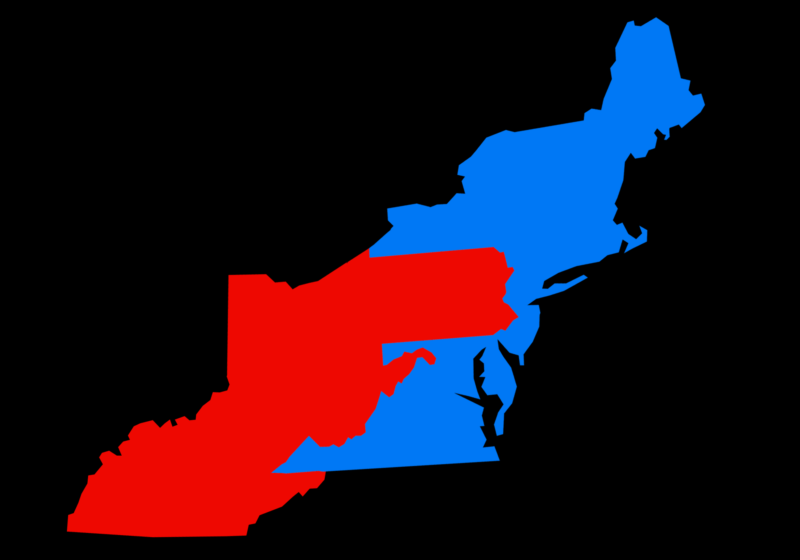Sitting in West Virginia, I was the youngest person around the fire by about 20 years. Every other attendee was a steadfast Democrat. This group of doctors, dentists, former government officials, and teachers implored me to explain why I thought the political climate was as polarized, partisan, and simply crazy as it was. To get to that fire, I had taken a road trip through the heart of Appalachia and back.
In front of that fire, I answered in a very academic, and somewhat cliched, way, like the political science major I am. I referenced a lack of popular support for Hillary to explain Trump, cited that I believed the Democratic Party was too diversified on policy issues to enact real change in Congress (even with a majority in either House), and made other similar arguments. Essentially, I posited a set of explanations which I now think missed the critical juncture.
Reflecting on those 30 hours I spent driving in Appalachia forced me to reconsider and rationally evaluate how Trump will do in 2020. And though it pains me to say it, seeing the absolute depression that pervades that part of the nation, I expect he will win again in 2020, for none of the academic reasons typically put forth.
My thoughts aren’t radical, or even new, but they warrant reiteration. When “New Yorkers,” “Democrats,” “liberals,” “Northerners,” “Yankees,” — or whatever label tossed around to refer to a person not from the conservative Southern fold — act baffled as to why people in Appalachia and the South speak about government forgetting them, we have already missed the point.
I left UR at 4:55 p.m. after a midterm and pulled into a Walmart parking lot in Charleston, West Virginia seven hours later. These did not just feel like different worlds, but separate universes.
Driving through rural Tennessee, I stopped in front of a trailer park whose residents had pooled together trash to burn — not because they were too remote to receive trash removal services, but because they couldn’t afford them. In southern Ohio (which went for Trump in 2016), I rolled into a McDonald’s. In one corner sat a group who was clearly out for Friday night family dinner. In the corner opposite, two guys used the free Wi-Fi to play “League of Legends.” In the booth adjacent, a family with bad teeth sat, the town’s name emblazoned on their shirts. Each table was visibly unhealthy, and simply looked beat.
Multiple generations of Americans have lived in parts of the country like this. They grew up in under-funded schools — and don’t blame the state for lowering taxes, there is no wealth to tax for public education — with bad diets, bad job opportunities, and in socio-economically identical bad neighborhoods.
These people have been experiencing a multi-generational depression. A depression and lack of opportunity similar to the plight of minority groups from African-Americans in the Bronx to Native Americans in South Dakota. But liberals fail to accept and recognize that this influences our elections.
I do not propose that their solutions to being ignored, like voting predominantly for Trump and other right-wing populists, are correct responses. But to me, the impulse to reject anything “establishment” makes sense. The establishment might have attempted to reach this part of the country, but never truly succeeded.
Change we see is change we believe in. Until they see that change, we as a country — especially those of a Democratic mind — need to stop acting so incredulous everytime we hear someone from southern Ohio decry big government as incapable of enacting positive change. If we want to speak about “Trump country” we really ought to visit it, not just debate it over a cup of coffee in New York. Much in the way we attempt to aid embattled neighborhoods, minorities, and other disenfranchised peoples, the same rules need to apply to Appalachia and the rural east — with an ear to listen, not to belittle and rebut.





